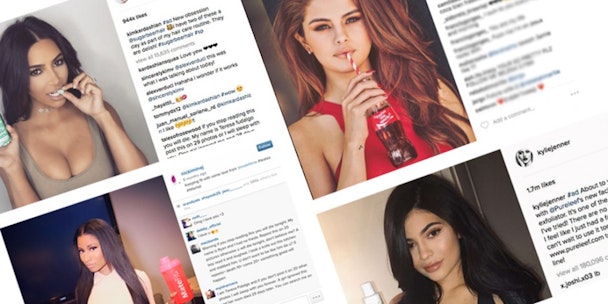How can brands working with influencers safeguard against 'cancel culture'
The idea behind cancel culture is to hold prominent social individuals and groups accountable for political or social transgressions through public shaming.

How can brands working with influencers safeguard against 'cancel culture'
Humans have always been interested in gossip and obsessed with conformity. You only have to think of the way transgressive women were hailed as witches and burned or drowned, to realise that cancel culture is nothing new.
The culture of cancellation is expansive within society, but politically it’s supposed to be hopeful rather than negative. Politically, cancel culture is intended to be about ‘a democratic aspiration… an exertion of agency and control, a reclamation of power.’ It’s a way for people to stand up for what they believe in, by boycotting individuals whose behaviour they don’t agree with. Yet the temporality and hysteria of the internet means that when someone – usually an influencer – is plagued with cancel culture, they can go on to succeed as a result… or can they?
One influencer that springs to mind when I think about cancel culture, is writer and activist Yassmin Abdel-Magied. She faced the most extreme version of cancel culture (if you can call it that) that I can imagine.
She was exiled from her country after a few tweets and Facebook statuses and deemed a “racist extremist” in the eyes of Australian politicians. What’s interesting about Abdel-Magied's case, is how well it highlights the neglected nuance of cancel culture.
Cancel culture is a broad church of scenarios that the bandied-about term seemingly neglects. What Abdel-Magied really became victim to was a potent mixture of social media, mainstream media and political harassment – and her experience, whilst extreme, is not an exception. So many influencers have undergone attacks from all corners of our social system, that in no way measure up to the misdemeanors that caused it all in the first place.
Cancel culture is the psychological equivalent of victims walking into a war zone and turning around to realise you’ve got no one else behind you. It’s not difficult to see how devastatingly lethal this combination of personal attack can be, as seen in the tragic case of Caroline Flack recently.
In the latest episode of Verified Views, Abdel-Magied tackles what cancel culture really means – for brands and influencers. Reviewing some of the key areas where brands can apply safeguarding measures, these are our learnings around the practical implementation of diversity and dismantling of “cancel culture”.
Do brands have a duty of care towards the influencers they work with?
Everyone seems to assume that influencers and celebrities alike are very powerful, with superhuman resilience and unsurmountable abilities to rise about trolling. Ultimately though, we’re all human and when it comes down to it, influencers are just as powerless towards trolls as the rest of us. In the face of bullying and slander, we all become victims – no matter how many Louis Vuitton bags you own, or how many holidays you go on every year.
When the mainstream media gets involved, everything seems to go south pretty quickly and there is not much that influencers can do to come back from it. While the average influencer might not experience “cancel culture” to the extremity that Abdel-Magied or Caroline Flack did, it is still an experience that many online personalities face – especially when it comes to brand deals.
Very often, a brand will take the quickest exit out of hot water, leaving the influencer to fend for themselves – when in reality, it always takes two to tango. There is power in sticking by your advocates. Being “cancelled” is an incredibly isolating experience, and it’s important that brands stand by their morals in our increasingly political world. Be the bigger person, the bigger voice and better humans.
If platforms really cared about the safety of their users, the design of them would be completely different.
The level of responsibility social platforms carry in abusive situations is a topic that definitely needs to be examined further, but right now, it seems they can get away with almost anything, as no-cost themselves. The problem is, of course, platforms are in some way responsible for the bullying that takes place Influencers, brands – particularly new generation DTC brands – and customers alike have a lot to thank social media for, in terms of giving us all a voice and platform. The platforms themselves were built by people who have never had to do the very difficult job of standing up for themselves, let alone the marginalised – and that’s where the lack of empathy comes from. How will social platforms take greater responsibility for their networks? Only time will tell…
Cancel culture ends with empathy – and empathy starts in the board room
Diversity is at the forefront of most marketing these days (as it should be), ensuring that all demographics of society are represented, from brand to brand. Whilst we might all understand what diversity is, very often we don’t fully understand how best to implement it. In the context of everyday existence, the first thing we should consider is unconscious bias. Building out practical diversity into workforces is the most sure-fire way for brands to safeguard against cancel culture (prevention is always better than a cure) and fostering a company-wide policy of empathy can go a long way. The influencer marketing world is built on human beings, so exercising humanity is key.

